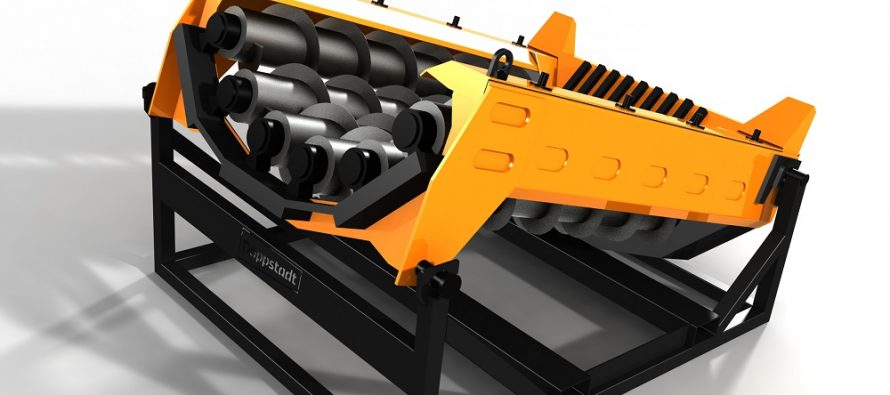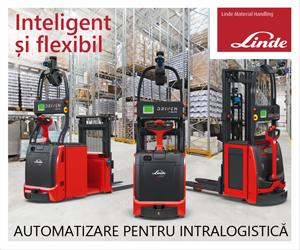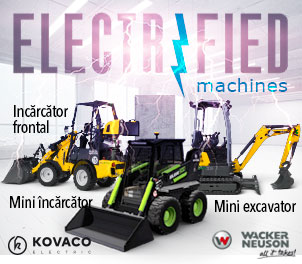Doppstadt separates even the stickiest mixtures of materials with the new SWS 3000 spiral shaft separator

Related Articles
Doppstadt‘s new spiral shaft separator really gets going just when normal screening machines reach the end of their limits: no matter how wet and sticky a mixture of materials (stones, earth, and loam content) may be, Doppstadt’s new product separates them while in the quarry, and uses natural resources efficiently: the raw material can be used in the spoil heaps, helping to extend the working life of a production site (such as a quarry).
 Earth, loam or clay can make it harder to recover raw materials (such as limestone), depending on the region in which quarrying is taking place, and make it very difficult for the operator to process raw materials cost-effectively. The loam content is a special challenge. Doppstadt has developed a robust solution for handling loam content: the brand-new SWS 3000 spiral shaft separator. This technology can be used all year round and reliably separates the stones from earth or loam, even in wet weather.
Earth, loam or clay can make it harder to recover raw materials (such as limestone), depending on the region in which quarrying is taking place, and make it very difficult for the operator to process raw materials cost-effectively. The loam content is a special challenge. Doppstadt has developed a robust solution for handling loam content: the brand-new SWS 3000 spiral shaft separator. This technology can be used all year round and reliably separates the stones from earth or loam, even in wet weather.
“At Doppstadt, we know all about recycling processes. In the last few years, we have also developed technology for separating mixtures of materials in the building materials industry. Our SWS 3000 is designed to significantly improve the cost-effectiveness of existing separation process in quarries”, said Product Manager Dirk Reibling, referring to the strengths of the new process. At Bauma 2019, Doppstadt presented these newcomers in its product portfolio. 
The clever technical twist in the SWS 3000’s design is its counter-rotating spiral shafts, which enable screening to take place while being unaffected by the consistency of the input material. The robust spiral shafts constantly separate off the sticky loam fraction, which has a similar consistency to modeling clay, in the tub-shaped screen deck. At the same time, the sticky loam is constantly being shaped by the action of the stones, so it can be removed by the spiral shafts. On the SWS 3000, operators can also adjust the angle of the screen deck to alter both the quality and the amounts processed (up to 300 t/h depending on the material property). In short: The SWS 3000 really gets going just when normal screening machines reach the end of their limits: no matter how wet and sticky the mixture of materials may be, Doppstadt’s new product separates them and uses resources efficiently. The result is that spoil heaps are smaller and the raw materials recovered from the spoil heap material help to extend the working life of a production site or quarry.
Doppstadt presented the latest addition to its product portfolio, the SWS 3000, at Bauma 2019 in Munich. Sales of the SWS 3000, which is designed for processing stones and different types of earth, are planned for 2020.






